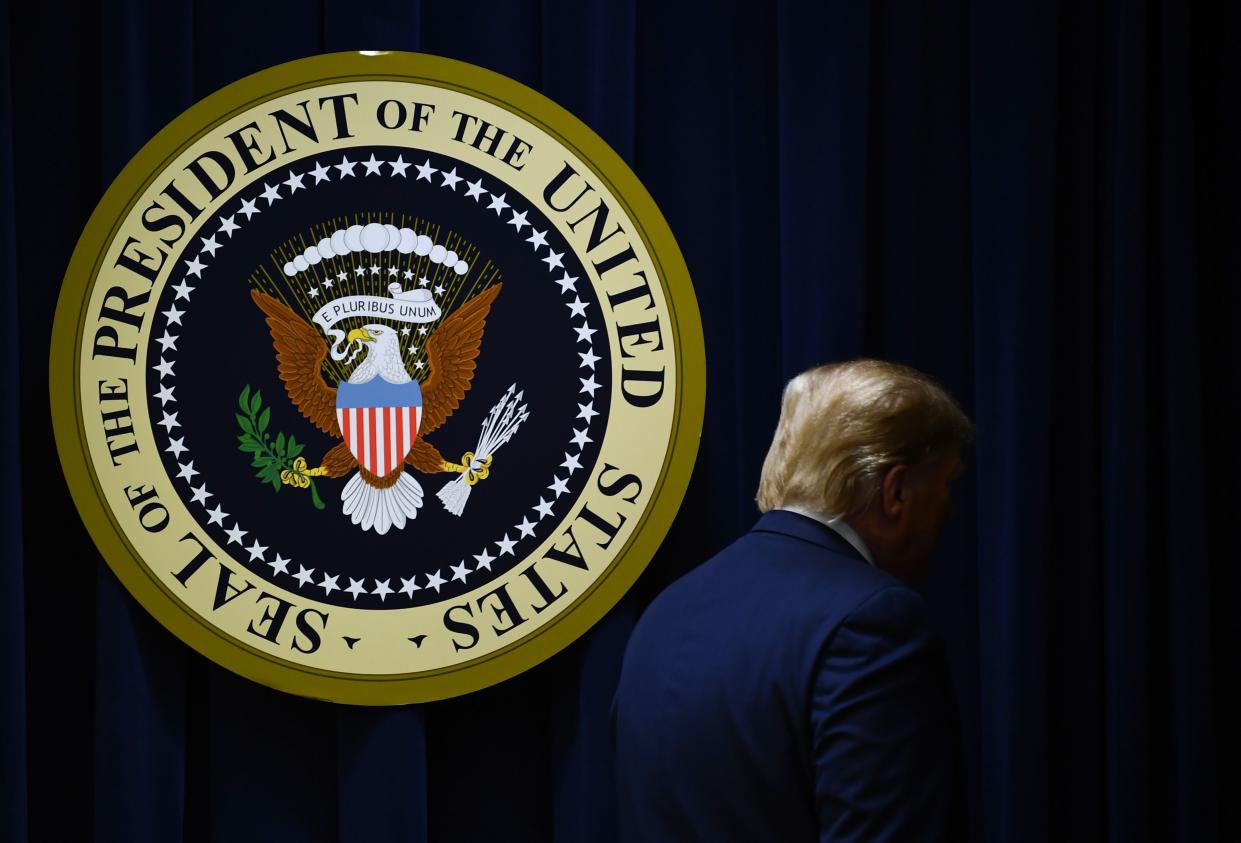As a lawyer, I know exactly why Trump should be prosecuted after he leaves office

FILES-US-VOTE-TRUMP
(AFP via Getty Images)The impulse for a new administration to move forward rather than look back is strong. Joe Biden, a decent man who takes the job seriously, has won. He will no doubt be stymied by the human roadblock that is Mitch McConnell. But in foreign policy, regulatory policy and criminal justice policy, we can say farewell to Mike Pompeo and quack doctors and coal lobbyists and, most of all, to William Barr. So what should a new administration do about four years of systemic wrongdoing?
Before Donald Trump’s accusations of treason and calls to “lock them up,” incoming administrations in the past effectively ruled out criminal investigations of their predecessors. President Obama and his attorney general made clear that there would be no criminal prosecution for the torture of detainees approved by the Bush administration, nor prosecution of the investment bankers who sold securities they knew to be toxic in a Ponzi scheme that nearly took down the world economy. Gerald Ford himself declared “our long national nightmare is over” before pardoning President Nixon from the crimes of Watergate.
Admittedly, Trump should not be prosecuted for his policy choices or his world historic mendacity or his deliberate divisiveness. Fracturing alliances and embracing authoritarian rulers? Certainly not good for the country and its moral authority, which, whatever its past lacunae, stood as a beacon to oppressed peoples for much of the last century. Trump’s patent racism and condoning of violence were loathsome but not criminal. Children being separated and kept in cages was a moral abomination, but it is unlikely to have been a breach of the federal criminal code.
And yes, hundreds of thousands of lives could have been saved had Trump’s narcissism and incompetence not turned coronavirus into a health crisis that has killed more than 200,000 Americans. But appalling governance is probably not mass homicide in law.
These are all reasons why Trump should have been impeached and removed from office. They are reasons for a rejection by voters that was exquisitely justified, although not nearly as overwhelming as it should have been. Being the worst, most outrageous president does not by itself get you thrown in jail, at least not in this country. But being a criminal president should.
The US Senate may have been supine during the impeachment trial, but there is still significant basis to conclude that President Trump personally ordered authorized foreign aid withheld unless and until the president of Ukraine agreed to assist in his re-election by providing information to smear Vice President Biden.There is also significant evidence that Trump lied in the Mueller responses to written questions in saying that he did not recall having conversations with Roger Stone regarding Wikileaks. And a proper reading of the Mueller report detailed multiple incidents of potential obstruction of justice. Those could not be charged because Trump was then a sitting President, but soon, he will no longer have that status.
The Stormy Daniels payoff through Michael Cohen was almost certainly an illegal campaign contribution and a tax violation. And even if prosecutors did not want to touch crimes that had a political tinge, they would have a field day based on what has been reported in The New York Times regarding Trump’s taxes.
We do not put our political enemies in jail for their political acts. But where the evidence against a person establishes beyond a reasonable doubt that the criminal law has been violated in a serious manner, that person, whomever he or she is, goes to jail.
If Trump ends up facing prosecution, it won’t be because of his political beliefs. It will be because he is, once again, a regular citizen.
Eric Lewis is a director of Independent Digital News and Media, which publishes The Independent, as well as a human rights lawyer in New York
Watch: Who is Donald J. Trump?

 Yahoo Movies
Yahoo Movies 
